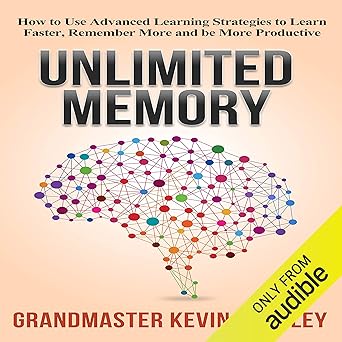Unlimited Memory: Empowering Innovation Through Enhanced Learning
Introduction
The field of engineering and innovation thrives on the constant influx of new knowledge and ideas. However, the sheer volume of information required to stay current can be overwhelming. This white paper explores the concept of "unlimited memory" within the context of engineers and innovators, outlining advanced learning strategies that can empower them to learn faster, retain information more effectively, and ultimately achieve greater productivity.
Why Memory Matters for Engineers and Innovators
In the fast-paced world of engineering and innovation, a strong memory translates to several key benefits:
- Faster Learning: Improved memory allows engineers to grasp new concepts quickly and efficiently, enabling them to stay ahead of the curve in rapidly evolving fields.
- Enhanced Problem-Solving: Retaining detailed information about past projects, materials, and design principles facilitates creative problem-solving and informed decision-making.
- Increased Efficiency: Remembering critical details reduces the need for repetitive information retrieval, improving overall workflow efficiency.
- Boosted Innovation: A vast knowledge reserve serves as a fertile ground for generating novel ideas and solutions.
Unveiling the Secrets of Unlimited Memory
Traditional rote memorization often proves ineffective. Here, we explore advanced learning strategies that promote deeper understanding and knowledge retention:
- Spaced Repetition: This technique involves revisiting information at spaced intervals, strengthening neural pathways and solidifying記憶 (jì yì - memory) over time. Apps like Anki and Memrise utilize this principle effectively.
- Active Recall: Instead of passively rereading material, actively engage with it by testing yourself through practice questions, creating mind maps, or generating summaries.
- Elaboration: Enhance understanding by connecting new information to existing knowledge or creating personal associations, making it more memorable.
- Mnemonic Devices: Utilize memory aids like acronyms, rhymes, or visualization techniques to encode information in a way that's easier to recall.
- Chunking: Break down large chunks of information into smaller, manageable units, making them less intimidating and easier to memorize.
Beyond the Basics: Optimizing Your Learning Environment
Optimizing your learning environment can significantly enhance memory performance:
- Minimize Distractions: Find a quiet space with minimal interruptions to focus intently on the task at hand.
- Prioritize Sleep: Sufficient sleep (7-8 hours) is crucial for memory consolidation and information processing.
- Healthy Diet: Balanced nutrition provides the necessary fuel for optimal brain function and memory formation.
- Physical Activity: Exercise promotes neurogenesis (the growth of new brain cells), enhancing cognitive function and memory.
Integrating Memory Enhancement into the Engineering Workflow
Engineers and innovators can incorporate these strategies into their daily routine:
- Pre-Meeting Review: Briefly review relevant information before meetings to ensure retention of key details.
- Project Documentation: Maintain detailed project documentation, including design decisions, calculations, and learning points, for future reference.
- Knowledge Sharing Sessions: Organize regular knowledge-sharing sessions within teams to strengthen collective memory and facilitate collaboration.
- Continuous Learning: Dedicate time for continuous learning through online courses, conferences, or participation in professional development programs.
A Note on Individual Differences
Learning styles and memory preferences vary across individuals. Experiment with different techniques to discover what works best for you.
Conclusion
While the concept of "unlimited memory" might seem fantastical, by adopting advanced learning strategies, optimizing the learning environment, and fostering a culture of continuous learning, engineers and innovators can significantly enhance their memory capacity. This, in turn, fuels innovation by boosting knowledge retention, problem-solving abilities, and overall productivity.
References
- Books:
- Moonwalking with Einstein: The Art and Science of Remembering Everything by Joshua Foer
- Make It Stick: The Science of Successful Learning by Peter C. Brown
- A Mind for Numbers: How Einsteins Brain Worked by Barbara Oakley
- Websites:
- Learning Scientists: https://pll.harvard.edu/
- Research Papers:
- "The Spacing Effect: A Case for Spaced Repetition and Retrieval Practice" by Pooja Agarwal et al. (2010) - https://psycnet.apa.org/manuscript/2019-56582-002.pdf
Suitability for ias-research.com
This white paper aligns well with ias-research.com's focus on engineering and innovation. By emphasizing the crucial role of memory in this field and outlining practical learning strategies, the paper provides valuable insights for engineers to enhance their knowledge retention and ultimately drive innovation. Contact ias-research.com for details.



